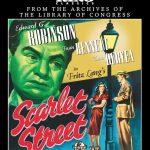What with the recent passing of director Norman Jewison, a retrospective of his work is in order. The filmmaker had a penchant for taking on social causes in his work, In the Heat of the Night, Fiddler on the Roof, Jesus Christ Superstar, Rollerball, F.I.S.T. and A Soldier’s Story among them. However, what’s often overlooked are the innovations he employed as well as the solid genre films he helmed.
Chief among them is The Thomas Crown Affair, a smart caper movie buoyed by the charisma of its two stars as well as the clever script by Alan Trustman. Steve McQueen takes the titular role, a successful businessman who enjoys his wealth, wining and dining attractive women, and engaging in the sports of the 1%, whether it be polo or gliding. He’s also a bit bored, amusing himself by planning and executing the perfect crime. Anonymously hiring five thieves, they knock off a Boston bank to the tune of $2.5 million.
Insurance investigator Vicki Anderson (Faye Dunaway) is called in and she uses her feminine wiles as well as some rather unscrupulous methods to get to the bottom of the case. She soon suspects Crown is the mastermind behind the plot but has no hard proof. What ensues is a cat-and-mouse game in which the laws of attraction come into play, as personal feelings come to conflict with moral duty and self-preservation.
Having been unveiled a year earlier at Expo 67, a world’s fair held in Canada, the multi-dynamic image technique was a revolutionary split screen process that not only divided the screen into different quadrants but moved them around as well. Jewison and McQueen were both impressed with the technology and, intent on being the first to use it on the big screen, lobbied for its use. While it can be a distracting device, it’s used to great effect here, adding a sense of vibrancy to the heist sequence, showing us what each of the thieves is going through before they meet up for the heist, as well as individually displaying their actions afterwards.
Equally striking is a sequence in which the two leads engage in a sexy, suggestive game of chess. Not a word is spoken between the two but much is conveyed by the way they look at one another, how they handle the pieces on the board and the entwining of their feet beneath the table. It’s amusing to see the usually unflappable McQueen become increasingly flustered throughout, Dunaway having the upper hand. That is, until they finally embrace and embark on the most vertiginous kiss in film history, Jewison’s camera circling them with increasing speed, Michael LeGrand’s Oscar-winning song The Windmills of Your Mind playing beneath them.
Though McQueen had worked with Jewison before on The Cincinnati Kid, he had to lobby hard for this role, the director convinced Crown didn’t match the actor’s screen persona. And at the time, Dunaway, who had just wrapped up the filming of Bonnie and Clyde, was still a relative unknown. The assured nature of both performers is a delight to behold, the chemistry between them palpable.
Kino-Lorber’s new edition of the film includes not only an audio track from Jewison, but a separate interview with him as well. His anecdotes and insights are invaluable in coming to appreciate the work and imagination that went into the film. Other audio tracks by historians Lem Dobbs and Nick Redman offer additional insights while a sit-down with title designer Pablo Ferro will make you appreciate an element in cinema that is often overlooked. The 4K restoration brings to vibrant life the cinematography of master Haskell Wexler, while a behind-the-scenes featurette is a time capsule that’s a delight to behold.




